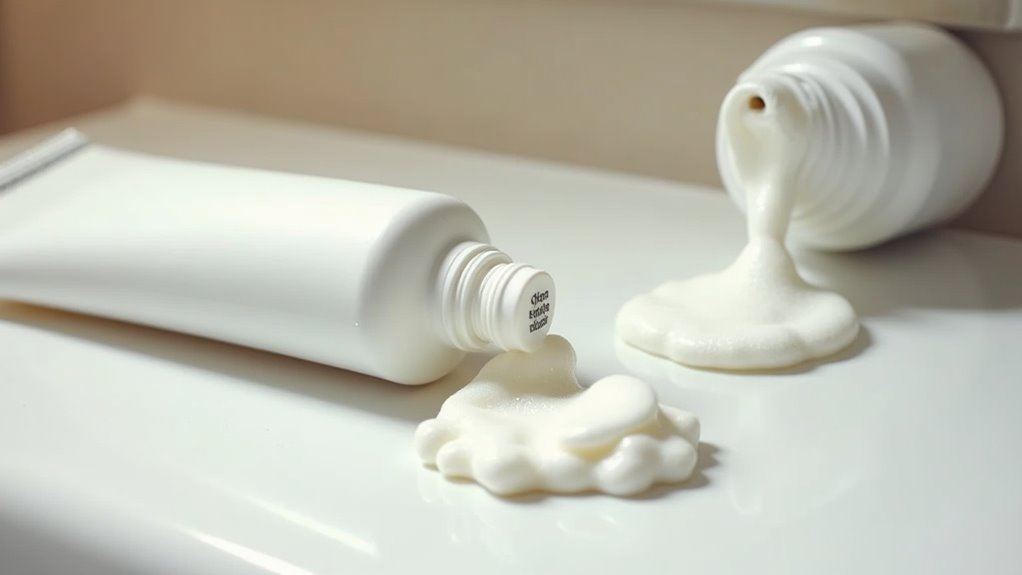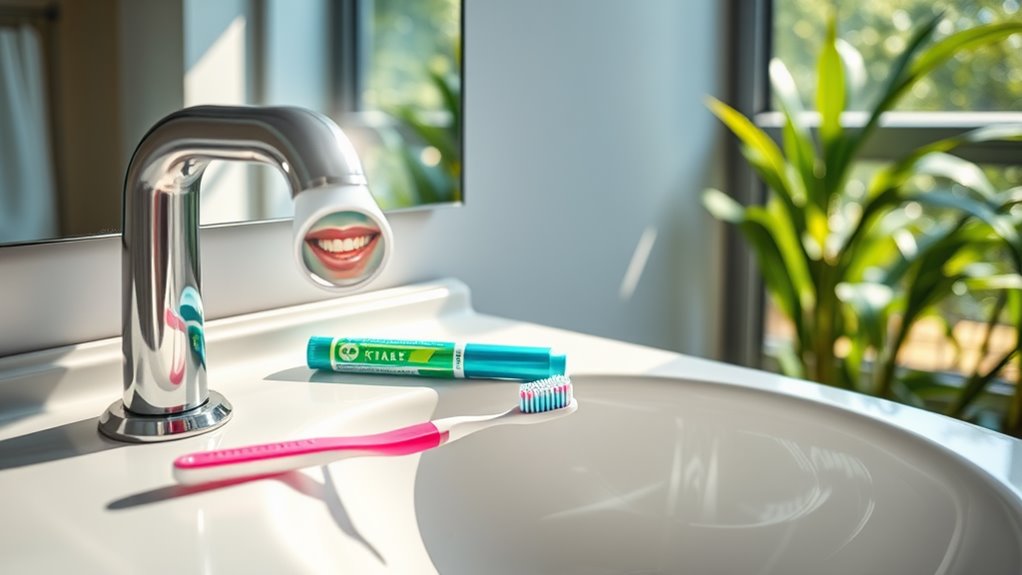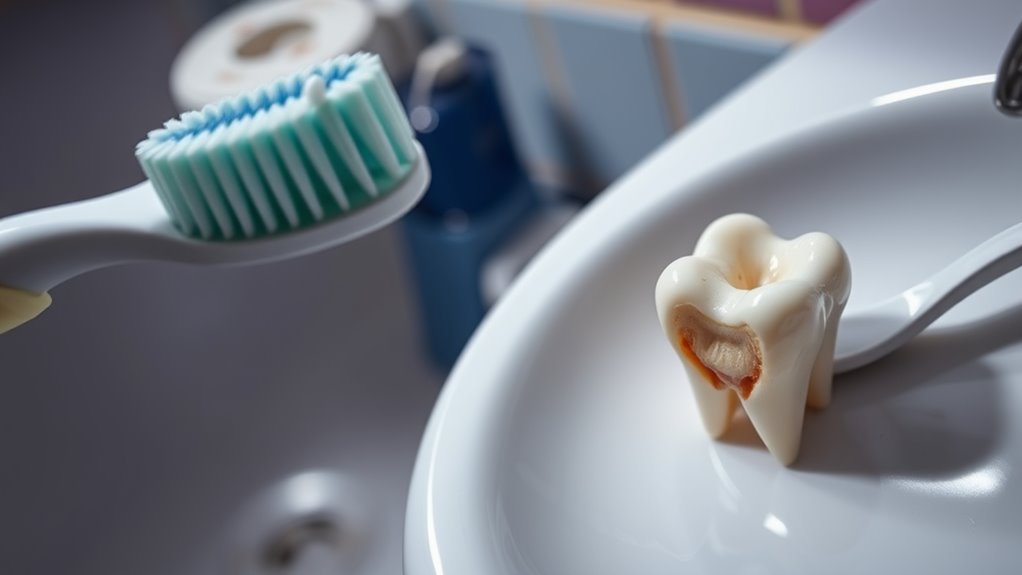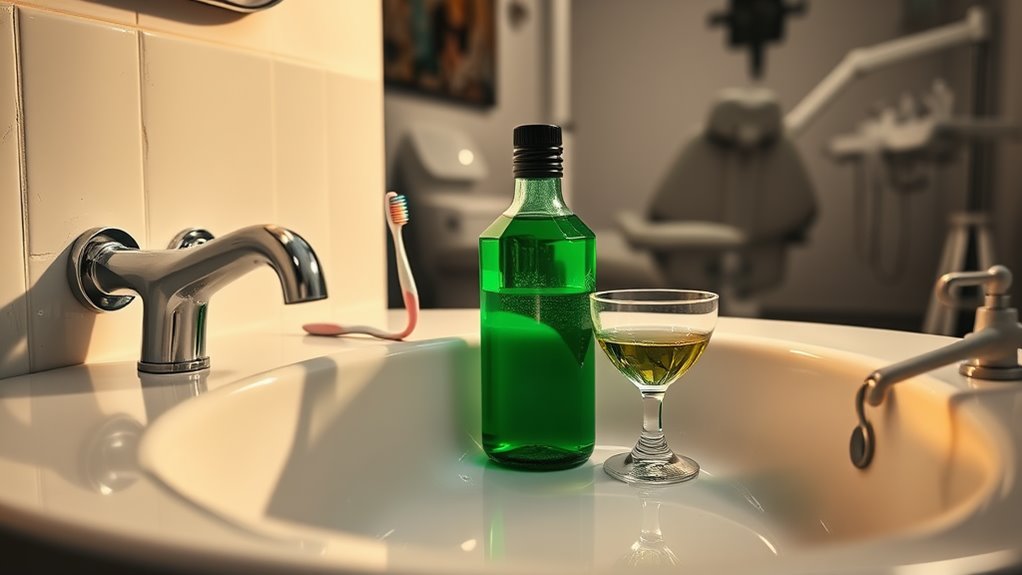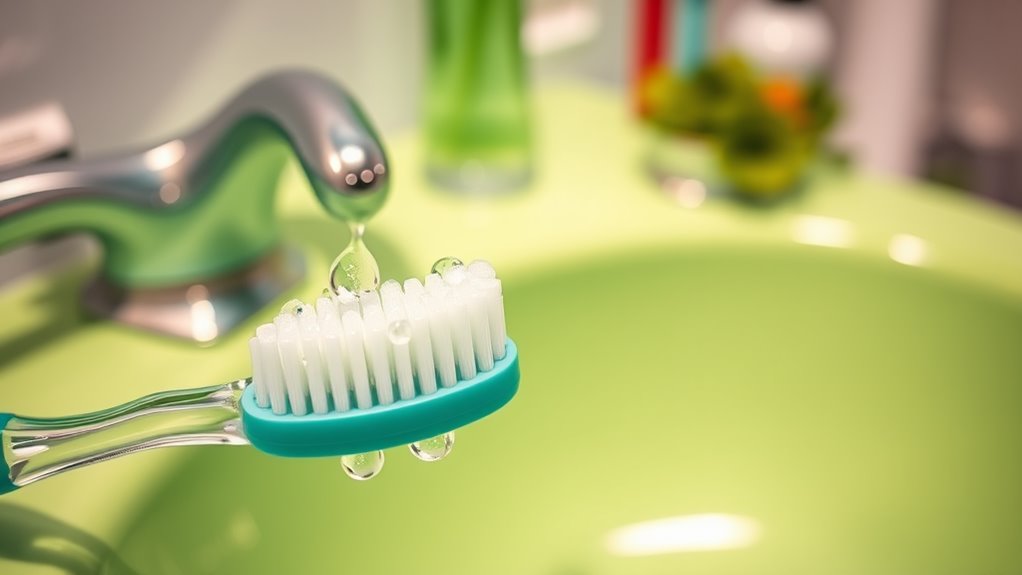The ONE Toothpaste Ingredient You Must AVOID!
Have you checked the ingredients on your toothpaste label lately? While you’re focused on maintaining that bright smile, there’s a hidden danger lurking in some dental products. It’s called triclosan, and it’s doing more than just fighting cavities. This controversial chemical has already been banned in several personal care items, yet it continues to appear in some toothpaste formulas. Before you squeeze out your next dollop, you’ll want to know what’s really happening inside that tube.
What Is Triclosan and Why Should You Care?
Triclosan is an antibacterial and antifungal agent that was once commonly found in many personal care products, including toothpaste. This dangerous toothpaste ingredient gained popularity in the 1970s for its supposed effectiveness at killing bacteria and preventing gingivitis.
You’ll find it’s still present in some oral care products today, despite growing concerns about its safety. Scientific research has linked triclosan to several health issues, including hormone disruption, antibiotic resistance, and potential impacts on your immune system.
The FDA banned its use in hand soaps and body washes in 2016, yet it remains in certain toothpaste formulations. When you brush your teeth, this chemical can be absorbed through your gum tissue and enter your bloodstream. Furthermore, the FDA’s stance urges consumers to consider alternatives due to health risk links associated with triclosan.
You’re part of a growing movement of informed consumers who understand that effective oral care doesn’t require potentially harmful synthetic antimicrobials. There are now numerous innovative, triclosan-free alternatives available for maintaining your oral health.
Health Risks Associated With Triclosan Exposure
Understanding the full scope of health concerns linked to triclosan can help you make informed decisions about your oral care products. Research has shown that this chemical disrupts your endocrine system, potentially affecting hormone regulation and reproductive health.
You’ll also want to know that triclosan can contribute to antibiotic resistance, making it harder for your body to fight off infections.
There’s mounting evidence that triclosan may weaken your immune system and alter your gut microbiome, leading to inflammation and digestive issues. Studies have linked it to increased allergies and food sensitivities.
What’s more concerning is that triclosan can combine with chlorine in tap water to form chloroform, a potential carcinogen. You’re also exposing yourself to thyroid dysfunction, as research indicates that triclosan can interfere with thyroid hormone production.
The chemical bioaccumulates in your body over time, meaning these risks increase with continued exposure.
Popular Toothpaste Brands Containing Triclosan
While many manufacturers have phased out triclosan in recent years, you’ll still find this controversial ingredient in several popular toothpaste brands.
To stay informed and make smarter choices for your oral care routine, you’ll want to check the ingredient labels of these common products.
-
Colgate Total was the most well-known brand containing triclosan, though they’ve recently reformulated their formula to exclude it – check your tube’s manufacturing date to ensure you have the newer version.
-
Private label brands often use older formulations that might still contain triclosan, particularly those manufactured outside strict regulatory environments.
-
Some specialty “antibacterial” toothpaste varieties marketed in international markets continue to include triclosan as an active ingredient.
-
Certain prescription toothpaste formulations prescribed for specific dental conditions may still contain triclosan, though dentists are increasingly recommending alternatives.
Stay ahead of the curve by choosing innovative toothpaste brands that use safer, naturally-derived antibacterial ingredients instead.
Natural and Safe Alternatives for Your Dental Care
Fortunately, you don’t need controversial chemicals to maintain healthy teeth and gums. Several natural alternatives have proven effective for daily dental care. You can switch to toothpaste brands that use ingredients like neem, tea tree oil, or activated charcoal – all known for their antibacterial properties.
Consider making your own toothpaste using baking soda, coconut oil, and essential oils. Mix these ingredients with a small amount of stevia for taste, and you’ll have a chemical-free solution that whitens and protects.
Another innovative option is tooth powder, which combines minerals like calcium carbonate with herbs such as cinnamon or mint. Additionally, using products with recognizable, plant-based ingredients can significantly enhance your oral health and overall well-being.
If you’re not ready to abandon commercial toothpaste entirely, look for brands that use xylitol instead of artificial sweeteners. This natural sugar alcohol prevents bacteria from sticking to teeth while providing a pleasant taste.
The key is choosing products with recognizable, plant-based ingredients that support your oral health naturally.
